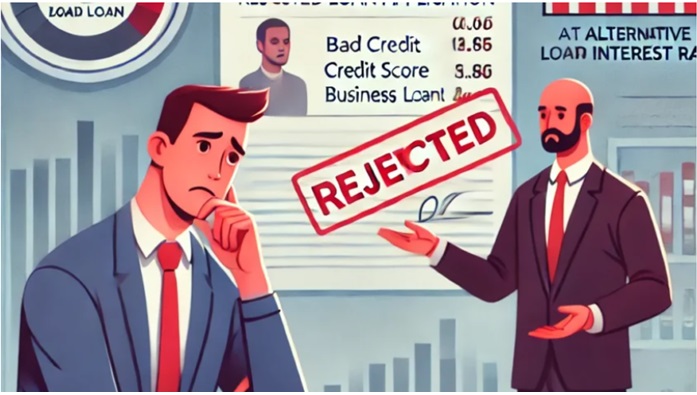Getting a car loan with bad credit can be challenging, but it is not impossible. Many lenders in Canada specifically cater to borrowers with low or no credit scores, offering options that help individuals secure financing despite their credit history. Understanding how these loans work and the available options can improve the chances of getting approved.
Lenders typically look beyond just credit scores, considering factors like income stability and employment when deciding on loan approval. Some loan programs also allow for co-signers or require larger down payments to offset risk. Exploring subprime lenders, credit unions, or specialized bad credit loan providers can reveal affordable loan terms even for those with poor credit.
For anyone worried about their bad credit hurting their chances, it’s important to know that many people in similar situations successfully get car loans every year. With the right approach and knowledge, borrowers can find lenders willing to work with them while improving their credit over time.
Understanding Credit for Car Loans With Bad Credit
Credit plays a crucial role in determining access to car loans, especially for those with low scores. Knowing what bad credit means, how it influences loan approval, and the specific credit score ranges lenders consider is essential for navigating financing options.
What Is Bad Credit?
First need to understand Credit for Car Loans with Bad Credit. Bad credit refers to a low credit score resulting from a history of missed payments, high debt levels, or other financial missteps. This score signals to lenders that a borrower may have difficulty repaying debts reliably.
Typically, credit bureaus use credit reports to calculate scores based on payment history, credit utilization, length of credit history, new credit inquiries, and credit mix. A poor score usually reflects several negative factors, such as late payments or defaults.
Despite bad credit, many lenders still offer car loans. Borrowers should understand their credit reports and take steps to improve their credit standing, which can lead to better loan terms over time.
How Credit Affects Car Loan Eligibility
Lenders use credit scores to evaluate the risk of lending money for a car purchase. A lower score often means higher interest rates, larger down payments, or stricter loan terms.
Approval chances depend on other factors too, such as consistent income, debt-to-income ratio, and employment stability. Some lenders specialize in working with bad credit borrowers and may approve loans with a co-signer or more substantial down payment.
The impact on interest rates is significant. Borrowers with poor credit might pay double or triple the rates charged to individuals with good credit, increasing the overall loan cost. Loan approval often requires proof of steady income and financial responsibility.
Credit Score Ranges for Car Loans
Credit scores affect loan eligibility in generally accepted ranges:
| Credit Score Range | Likelihood of Loan Approval | Typical Interest Rate Impact |
| 300–579 | High risk; hardest to get loans | Very high rates; largest down payments needed |
| 580–669 | Subprime but potentially approvable | High rates, but some lenders available |
| 670–739 | Considered good; easier to qualify | Moderate rates, better loan terms |
| 740+ | Excellent credit; best terms | Low interest rates, flexible terms |
Borrowers with scores below 580 are often classified as bad credit and face more challenges but can still secure loans through specialized lenders. Improving scores above 580 enhances approval odds and lowers costs.
Strategies to Get Approved for a Car Loan With Bad Credit
Securing a car loan with bad credit requires targeted actions. It often involves selecting lenders willing to work with credit challenges, enhancing the application’s strength, and organizing proper paperwork to meet lender criteria.
Choosing Lenders That Work With Bad Credit
Some lenders specialize in loans for individuals with low credit scores. These include certain private lenders, online financing companies, and dealerships experienced in bad credit loans.
Borrowers should focus on lenders who explicitly advertise bad credit options. These lenders often accept applicants with scores below 560 and may not require a cosigner.
Interest rates and fees tend to be higher with these lenders. Comparing multiple offers helps find the best terms and avoid excessively costly loans. Building a list of reputable lenders with transparent conditions is a key first step.
Improving Your Chances of Approval
A steady income and low debt-to-income ratio are critical factors lenders consider. Demonstrating reliable income reassures lenders of repayment ability.
Making a substantial down payment reduces the loan amount and shows financial commitment. This often improves approval odds and may lower interest rates.
Adding a guarantor or cosigner with stronger credit can significantly increase approval chances, though some lenders do allow loans without one.
Maintaining current payments on other debts and limiting new credit inquiries also supports the application. Careful budgeting to confirm affordability is important before applying.
Preparing Required Documentation
Organizing clear, complete paperwork is essential. Lenders typically require proof of income such as pay stubs or tax returns.
Identification documents and proof of residence must be current and valid. Bank statements showing consistent deposits help demonstrate financial stability.
If the borrower plans to use a guarantor, their documents will be needed as well.
Having all paperwork prepared in advance accelerates the process and reduces the chance of delays or denials due to missing information.






